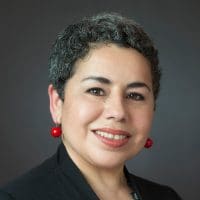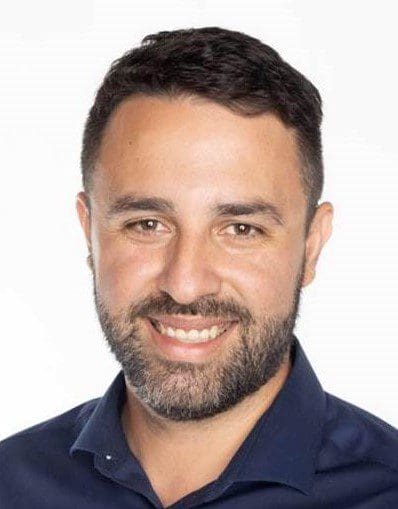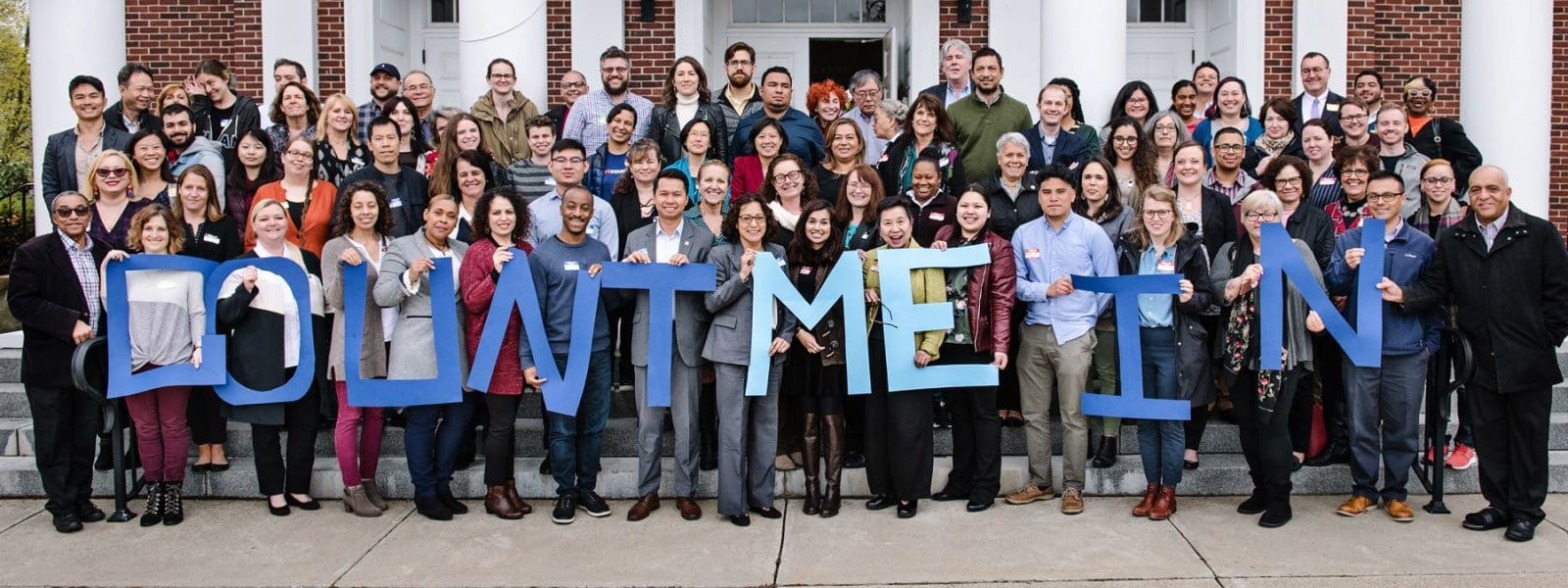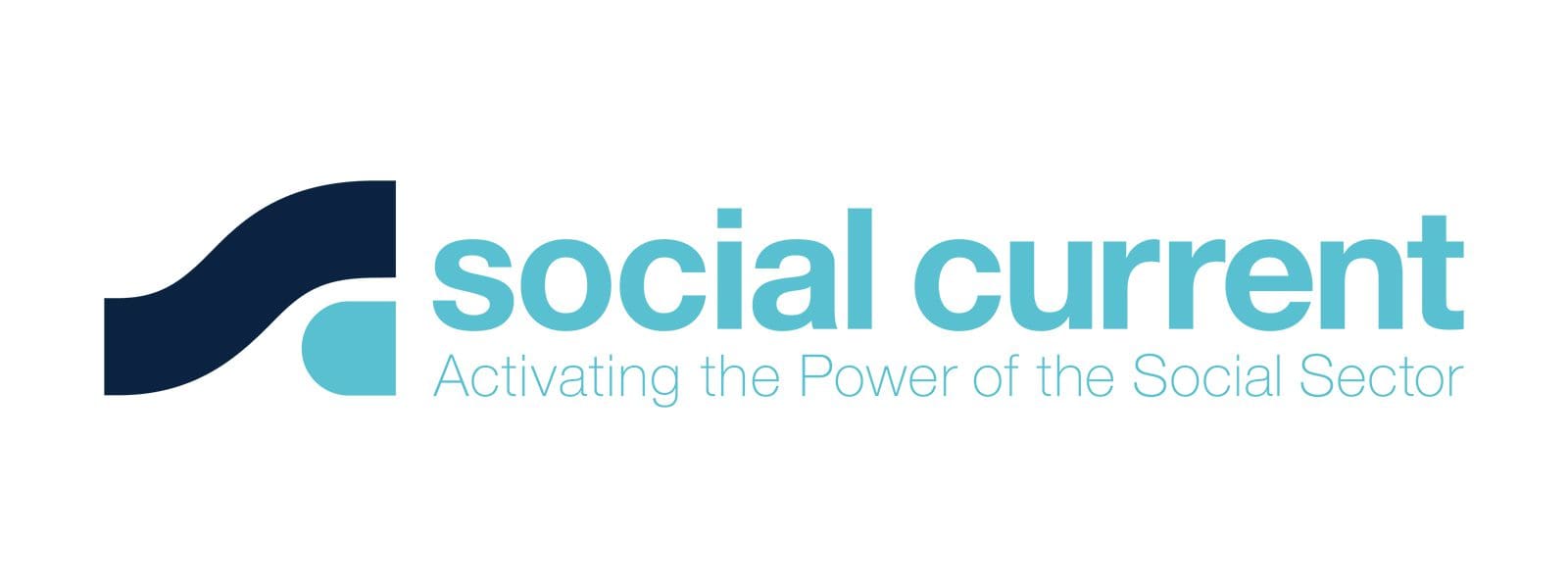Six months after people made history by casting a record number of ballots in the 2020 U.S. elections, during the COVID-19 pandemic, Clarissa Martínez of UnidosUS – the nation’s largest Latino civil rights and advocacy organization – had hoped that civic engagement and legislative efforts would focus on surpassing the 67% turnout rate that involved more than 154 million voters.
“For the strongest democracy in the world, participation should be higher. We should be aiming next at least for 80%,” says Martínez, Deputy Vice President of Policy and Advocacy at UnidosUS, which is based in Washington, DC.

Clarissa Martínez
Instead, nonprofit organizations, philanthropies, and allies working to expand the electorate and boost the turnout rate to include more voices in an increasingly diverse nation are finding that the focus, now, is regressing to a fight to vote in many states.
As of early April, lawmakers in 47 states – including Georgia, Texas, Arizona, and Florida – have introduced 361 bills that the Brennan Center for Justice says contain restrictive voting provisions for U.S. citizens. The number of such bills marks a 43% increase since February, according to the nonpartisan law and policy institute in New York City.
The bills include language calling for stricter voter registration and identification requirements, as well as reducing the opportunity to cast a ballot before Election Day. Also, in the legislation, as the Brennan Center reports, are expansion of purges of Americans on government voter rolls, and greater restrictions on absentee voting.
Supporters of these bills say it’s about protecting the integrity of the ballot box – an argument that critics say is based on false information and efforts to restrict pathways to the ballot box for communities of color and low-income voters.
 “Voter registration is a key factor in keeping our democracy vibrant,” Martínez says. “It’s important for our Latino community because we have 15 million people who are eligible, but in need of registration. Even though we’re one of the fastest-growing segments of the electorate, we’re in need of registration.”
“Voter registration is a key factor in keeping our democracy vibrant,” Martínez says. “It’s important for our Latino community because we have 15 million people who are eligible, but in need of registration. Even though we’re one of the fastest-growing segments of the electorate, we’re in need of registration.”
In recent days, state officials in Texas and Florida have approved measures that voting rights advocates call restrictive. Concerns about ballot box access, they add, would still exist, regardless whether a Democrat, Republican, or Independent introduced such a bill.
They also point to the 2020 election in which Black, Latino, and Asian voters had higher rates of participation, compared to 2016, something the U.S. Census Bureau reported in late April. Native American voters also had high rates of participation in 2020, according to community organizations and news reports.
Protecting the right to vote for all U.S. citizens involves making connections about what is occurring in state legislatures and battling false narratives that these bills are needed, says Claudia Ruiz, Policy Analyst at UnidosUS, which has a network of nearly 300 affiliate organizations that serve Latino communities nationwide.
“This effort crosses state lines and institutions,” she says. “When you zoom out, you really are seeing a concerted effort to disenfranchise voters that we’re trying to empower.” 
Ruiz points to the Voting Rights Act ruling by the U.S. Supreme Court in 2013 as one reason why state lawmakers are now introducing legislation that many are calling voter suppression.
Martínez views these bills as ways to change the democratic makeup and will of voters in a community: “Voting is about people having a voice and selecting those who will represent them. What we are seeing is an attempt to turn that on its head, with some politicians trying to select who gets to vote for them.”
In South Texas in the Rio Grande Valley, concerns about voting rights remain among outreach workers at La Unión del Pueblo Entero (LUPE), a farmworker and civil rights organization. LUPE is one of the nearly 300 affiliates of UnidosUS.
“We know in Texas it’s a growing demographic of Latino and minorities who are becoming a larger part of the electorate,” says Daniel Diaz, LUPE Director of Organizing. “You’re eliminating people from their rightful seat at the table.”

Daniel Diaz
The concern in Texas, he says, is about protecting early voting hours, drive-thru voting, and making it easier for U.S. citizens to register to vote – ways that will help the elderly, the disabled, Latinos, and other communities of color.
The U.S. House of Representatives has passed H.R. 1, a bill that would override restrictive voting rights measures at the state level. Passage, though, of H.R. 1 in the U.S. Senate remains uncertain.
Martínez adds that continued grassroots outreach and engagement with voters, especially among Latinos and communities of color, will help – both now and in the future.
In 2020, she says, UnidoUS succeeded in registering 127,000 new voters. Last year, the organization also contacted more than 500,000 voters about the importance of the election, voting early or by mail, and where to call if help were needed.
For Diaz and other members of LUPE, the next steps include continuing to travel to the Texas state Capitol in Austin to let lawmakers know about protecting voting rights. The Rio Grande Valley is home to about 1.3 million people, many of whom are from bilingual families in which there are U.S. citizens and immigrants.
“Many people outside the Latino community like to celebrate Cinco de Mayo, but when it comes to what matters the most, of having power in politics and government, what they’re saying is, ‘You can’t have that,’” Diaz says.
“But everybody deserves to be heard. Everybody deserves justice.”
Bradley Wong is director of strategic communications and public relations at Independent Sector. UnidosUS is an Independent Sector member. Since 1968, UnidosUS, which started as NCLR, has remained a nonpartisan voice for Latinos. The nonprofit organization serves the Hispanic community through research, policy analysis, and state and national advocacy efforts, as well as program work in communities nationwide. The top photograph is courtesy of LUPE. Learn about other Independent Sector members and becoming a member.



